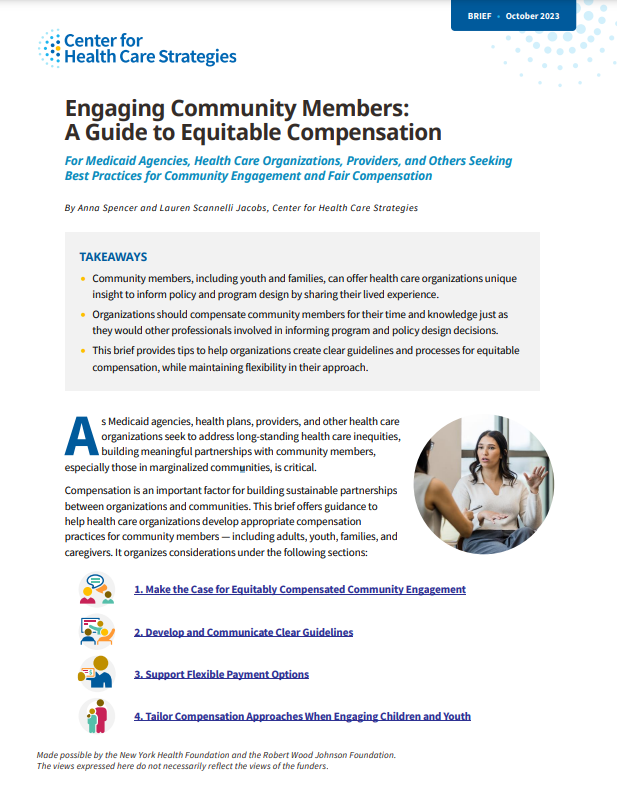Headline
Toolkit offers health care stakeholders interested in working with community members guidance on equitable compensation strategies.
Context
Health care stakeholders are increasingly looking to community members to provide insights on improving health care policy and program design, especially individuals who live in historically marginalized communities. However, those seeking community expertise too often overlook compensating those providing this knowledge, further perpetuating inequities for this population.
About This Tool
This brief provides guidance for health care organizations interested in developing equitable compensation practices for community members and is organized under the following sections:
- Make the case for equitably compensated community engagement;
- Develop and communicate clear guidelines;
- Support flexible payment options; and
- Tailor compensation approaches when engaging children and youth.
Each section has an in-the-field example that describes how these compensation strategies look in practice.
Takeaways
Medicaid agencies, health plans, providers, and other health care organizations can use this resource to help mitigate confusion about organizational compensation processes and promote equitable community partnerships. Fair compensation acknowledges the value that lived experience brings to this work and is an important step to dismantling the historic power imbalances between health care organizations and the communities they serve.

